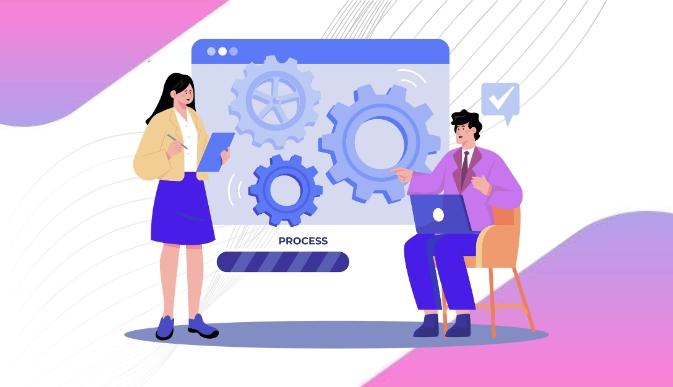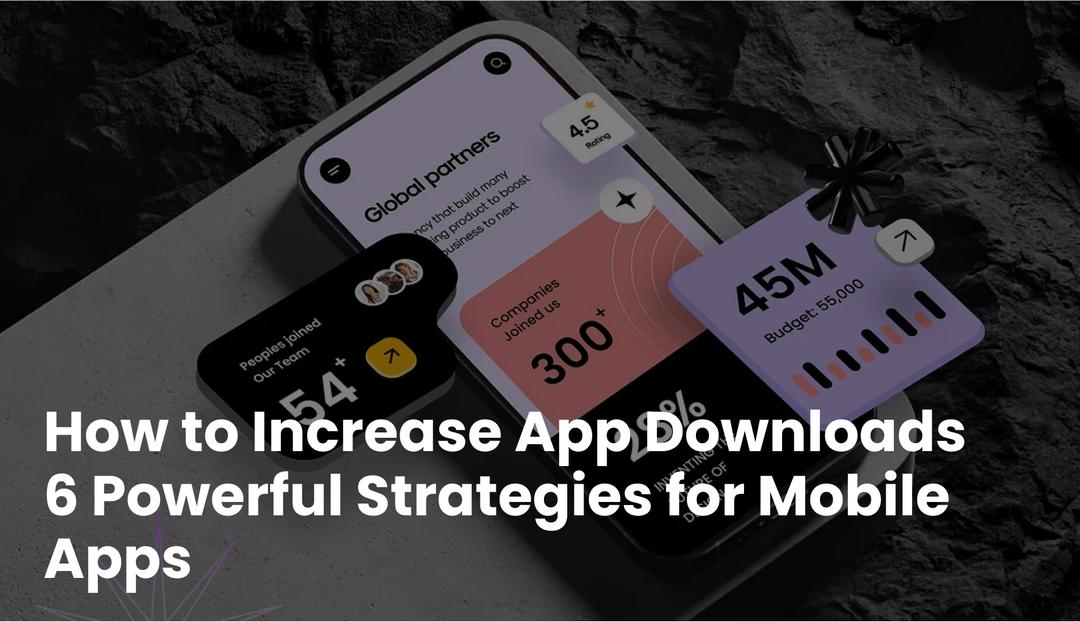Agile is a way of thinking, not just a catchphrase. Instead of shooting to deliver everything at once, it allows development teams to work in small, manageable and easy steps called sprints. Make sure to collect feedback, make quick adjustments, and keep improving the product, this strategy helps teams in releasing functional versions of the app frequently and early.
The development of mobile apps has changed over the 10 years because Agile methodologies. Agile offers flexibility, teamwork, and a strong emphasis on providing value to the user in place of strict plans and lengthy timelines. It encourages continuous iterations, open communication, and frequent testing, all essential for creating a successful mobile app in 2025 and beyond.
However, what precisely makes Agile so effective in app development? What makes Agile the preferred development approach for startups, tech firms, and even major corporations?
We’ll look at the main causes of Agile’s rise to prominence in app development in this blog. And show you how Agile can transform your app idea into a polished, scalable product faster and smarter by going over its main ideas, advantages, and practical effects.
Ready to Build Smarter with Agile?
Discover how Agile can accelerate your mobile app development. Speak with our experts to explore a sprint-based, feedback-driven approach that ensures faster releases and better product quality.
Talk to an Agile Expert
Quick Overview of Agile Methodology
Projects in Agile methodology are divided into different sprints, which are brief, targeted work cycles. A small, convenient set of features called user stories must be completed during each sprint, which usually lasts two weeks. These stories outline particular duties or tasks that the team hopes to complete in that sprint. Compared them to traditional waterfall development, Agile development maintains an organized and flexible process by focusing on fewer features at a time, which makes managing development and release simpler.
Agile development teams are purposefully small, consisting of no more than 12 members. Developers, QA testers, analysts, a product owner, and a Scrum Master who also known or work as the project manager, that adjust the core team. Throughout the sprint, the product owner serves as the voice of stakeholders, giving direction, responding to inquiries, and giving feedback.
The team holds brief daily meetings every day to discuss progress, hurdles, and future plans in order to keep everyone on the same page. The team conducts a planning session to outline tasks for the upcoming sprint after reviewing and releasing their work at the conclusion of each sprint. Continuous improvement and quicker delivery of high-quality apps are ensured by this iterative, continuous cycle.
Top 10 Reasons Why Agile Development Is the Right Choice for Mobile App Success
Successful mobile app development calls for a flexible, effective, and cooperative development process in addition to a solid idea. Agile software development and testing can help with that.
Agile development has emerged as the preferred approach for making user-focused, easily adaptable, and scalable mobile applications. Agile make sure teams to produce high-quality products more quickly and with more control than traditional models like Waterfall.

Let’s explore the top 10 reasons why Agile is the right choice for best mobile app development company dallas and how it can drive better results for your next digital project.
1. Keeps Technical Debt in Check
The remaining work needs to maintain your app, like bug fixing, testing, and code enhancements, is referred to as technical debt. With conventional approaches, teams scramble to meet deadlines, which causes this debt to accumulate quickly.
By integrating maintenance into the development cycle, agile lowers technical debt. Bug fixes and modifications are immediately added to the product backlog. Bugs are fixed alongside new features because the team chooses what to work on during sprint planning. This method keeps your app clear, effective, and future-proof.
2. Agile Welcomes Change, Anytime
The needs of users are ever-changing in the real world. Agile not only accepts this, but actively promotes it. Because development takes place in brief sprints (typically 2-4 weeks), teams can quickly release updates, change course in response to feedback, and easily adjust priorities.
Novel concepts or pressing problems? Simply prioritize them for the upcoming sprint and add them to the backlog. Long approval chains and reworking elaborate plans are unnecessary.
3. Full Transparency and Team Alignment
Agile app development’s ability to maintain stakeholder and team alignment is one of its greatest advantages. The entire team developers, testers, analysts, and the product owner—reviews and decides on the tasks that need to be completed before each sprint.
Everyone is in agreement thanks to daily stand-up meetings. Agile teams operate more effectively and maintain accountability because of this degree of transparency and cooperation, which is uncommon in traditional development methodologies.
4. Reduced Project Risk
Testing and feedback are frequently put off until the very end of traditional app development, which leaves teams unaware of problems until it’s too late.
Agile flips this paradigm. Teams can get ongoing feedback, identify problems early, and steer clear of unpleasant surprises later by testing features as they are developed. By using this incremental development approach, you can reduce risk and make sure you’re always creating something worthwhile.
5. Higher Quality Product
The quality of an app may compromise when teams attempt to develop it all at one time. Agile avoids this by segmenting projects into smaller, more manageable pieces. Because there are only a few features in each sprint, developers can concentrate, test extensively, and produce more polished work.
Furthermore, product owners like continuous integration guarantee that new code is tested frequently, which speeds up bug detection and minimizes rework.
6. More Predictable Delivery
It is simpler to predict when new features will be released thanks to Agile’s time-boxed sprints. Agile gives product owners’ assurance about what is being developed and when they will receive it, in contrast to Waterfall, where delivery dates frequently change.
Additionally, this regular cadence maintains stakeholder engagement and generates a steady flow of value for users.
7. Stronger Stakeholder Involvement
Stakeholder engagement with Agile is ongoing rather than one-time. Throughout sprints, the product owner collaborates closely with the team, offering suggestions, evaluating work, and assisting with task prioritization.
This active participation gives stakeholders a sense of ownership that keeps them invested and guarantees that the product accurately reflects user needs and business goals.
8. User-Centered Development
Developing products that people want to use is the main goal of agile. Agile replaces long, rigid requirements document with user stories, which are concise, direct descriptions of features from the perspective of the user.
This approach helps developers focus on results and practical applications instead of just technical details. And the results are applications that are responsive, practical, and easy to use.
9. Happier Customers, Faster Feedback
Users and stakeholders don’t have to wait months to see results because Agile produces functional features at the end of each sprint. This regular delivery fosters confidence and guarantees that your product is constantly getting better.
Frequent feedback loops and demos keep your app in line with changing market demands and user expectations, which increases customer satisfaction.
10. Greater Project Control
Agile provides your team with continuous progress visibility through sprint retrospectives and daily standups. The team continuously improves its strategy based on what is effective, and any problems are found early and resolved promptly.
In addition to producing better outcomes, this high degree of control fosters a more positive team environment where everyone feels empowered, informed, and involved.
Build a Future-Proof App with Agile Excellence
Want to launch a high-quality, user-centric mobile app faster and with less risk? Partner with our Agile development team to turn your vision into a scalable, polished product—sprint by sprint.
Get a Free Agile Consultation
Final Thoughts
Agile development is a tried-and-true methodology for producing better apps more quickly. Agile app development can assist you in creating a product that adapts, scales, and is successful, whether you’re launching an eCommerce solution, a fintech platform, or a health tracking app.
Our team at BitsWits is available to assist you if you’re searching for a development partner who can use Agile best practices to realize your app idea. One sprint at a time, let’s build something incredible.
FAQs









